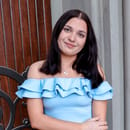In middle school, my mom used to say I was more likely to bring a book somewhere than my brand new iPhone. She was right. It had been that way for a long time. I was the second-grader who felt a rush of pride when my teacher allowed me to check out eighth-grade level books on library days. I was the girl who read on the bus home every day. I drowned myself in “Harry Potter” and “Percy Jackson” and, as I grew older, endless contemporary romances. My Goodreads records indicate that in 2016, the year I turned 13, I read 165 books.
When I started high school, I suddenly lost this hobby. I was overwhelmed with schoolwork and new social situations and, later on, a job. I still loved reading. I still had piles of books in my room. I still tried to read every now and then, but I could never get as invested as I once had. It saddened me to look at my full bookshelves and know that I had lost something that was once integral to my everyday life.
I’ve had a lot more free time since starting college, which has led me back to the bookshelf. But I had no desire to pick up where I left off, with teen romances and middle-grade fantasy. In my quest for new genres, I’ve tried everything from adult contemporary to historical fiction to “Twilight” reboots. What I’ve been most drawn to, however, is nonfiction. Some of my recent favorites are “The Glass Castle,” “The Anthropocene Reviewed” and “Fun Home.” Each of these has been important in re-sparking my love of reading, and I hope they can be helpful to you too.
“The Glass Castle” by Jeannette Walls
This unforgettable memoir follows the author’s nomadic childhood in the 1960s and ‘70s. Jeannette Walls grew up shuffling from small town to small town, usually staying in one place for only weeks. The book explores the Walls family’s untraditional lifestyle, as well as their continued love for one another through immense struggle. Walls’s storytelling invites questions about the conventional boundaries of family and career in America.
I’m not an especially reactive reader; I don’t cry or laugh out loud easily. But this memoir had me genuinely gasping, laughing, and smiling the whole way through. I felt I knew every family member personally, yet I was still left wanting to know more.
“The Anthropocene Reviewed” by John Green
Adapted from Green’s podcast of the same name, “The Anthropocene Reviewed” is a collection of short essays discussing topics like Diet Dr. Pepper, velociraptors and the bacteria that causes staph infections. The longest essay is maybe ten pages long, but this brevity is what gives the collection its poignance. In such short blocks, Green manages to explore the history of a topic, connect it to his life and teach readers life lessons.
I would argue this collection is half general nonfiction and half memoir. Green’s analysis, both research- and experience-based, implores you to see your life in the same way, to recognize the significance that seemingly unnecessary things have in your life. The length of the essays makes the collection easy to fly through, and its humor begs you to keep reading.
“Fun Home” by Alison Bechdel
“Fun Home” is a graphic memoir following author Alison Bechdel’s unusual childhood in Pennsylvania. Told from Alison’s perspective as an adult, the book focuses primarily on her strained relationship with her closeted gay father, Bruce. While he is alive, their bond is lackluster at the best of times. Shortly after Alison discovered that she too was gay, her father died unexpectedly. The book’s complicated family dynamics explore the nuances of sexuality, self-discovery and parental love.
Because it is a graphic memoir, “Fun Home” is a relatively quick read. What it lacks in length, it makes up for in emotional impact. Bechdel’s art style so clearly communicates her feelings that I felt I was going through them too.


